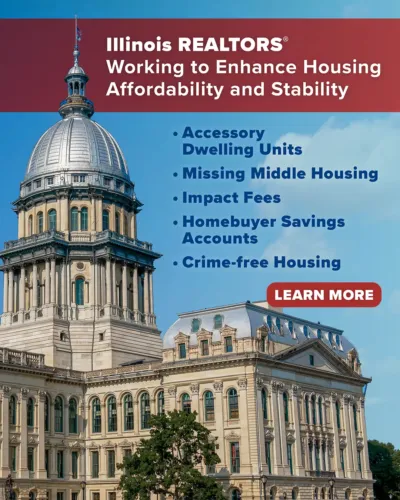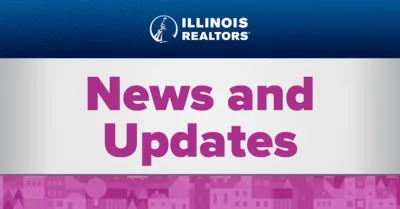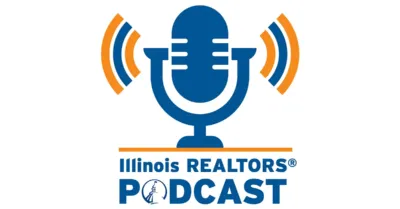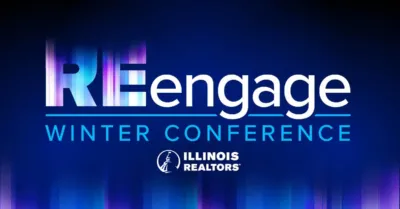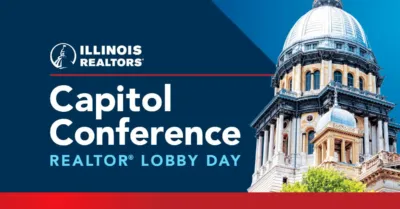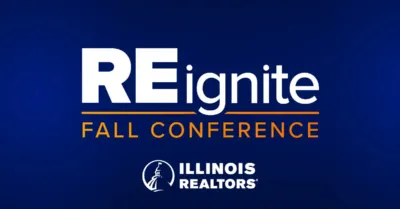Changes to the Code of Ethics and enforcement of the Code
On Nov. 13, 2020, the National Association of REALTORS® (NAR) Board of Directors approved changes to the Code of Ethics aimed at combating discriminatory hate speech.
“A REALTOR® shall be subject to disciplinary action under the Code of Ethics with respect to all of their activities,” according to the amended language of Policy Statement 29 in the Code of Ethics and Arbitration Manual.
Previously, Policy Statement 29 limited the applicability of the Code of Ethics to real estate-related activities and transactions. As such, members could engage in conduct and speech that was discriminatory and abhorrent, and unless it could be tied to a real estate-related activity or transaction, the Code of Ethics did not apply.
This revised policy expands the applicability to ALL activities of a REALTOR®, especially as it applies to Article 10 of the Code. Note that the other articles, by their own terms, apply to real estate activities or practices.
A new Standard of Practice under Article 10 was adopted:
Article 10, Standard of Practice 10-5: “REALTORS® must not use harassing speech, hate speech, epithets or slurs based on race, color, religion, sex, handicap, familial status, national origin, sexual orientation or gender identity.”
This Standard of Practice directly flows from the requirement to not deny equal professional services or be parties to a plan to discriminate. Specifically, showing bias against a protected class revealed through the public posting of hate speech could be evidence that REALTORS® would deny services to certain clients from certain protected classes or not treat them equally.
Section 2 of the NAR Bylaws was also amended to require Member Boards to share with the state real estate licensing authority final ethics decisions holding a REALTOR® in violation of the Code of Ethics in instances involving real estate-related activities and transactions where there is reason to believe the public trust may have been violated. Public trust, as used in this context, refers to demonstrated misappropriation of client or customer funds or property, discrimination against the protected classes (emphasis added) under the Code of Ethics or fraud.
NAR has also issued guidance to ethics hearing panels as to what should be deemed “offensive” or “discriminatory” speech. Article 10, Standard of Practice 10-5, is not focused on types of speech that might be subjectively deemed “offensive” or “discriminatory” by one person and not another.
The Standard of Practice is based on very particular types of speech directly connected to the protected classes of race, color, religion, sex, handicap, familial status, national origin, sexual orientation or gender identity under Article 10. Only the use of harassing speech, hate speech, epithets and slurs based on the protected classes of Article 10 are prohibited. The terms harassing speech, hate speech, epithets and slurs can be commonly understood through their dictionary definitions as well as other readily available references.
Grievance Committees and hearing panels should follow a two-step process asking two questions: First is the language or speech harassing, hateful, an epithet or slur; and second, is the harassing speech directed at any of the protected classes?
Again, hearing panels must look to whether the hate speech, epithet or slur is based on race, color, religion, sex, handicap, familial status, national origin, sexual orientation or gender identity and not on some other non-protected characteristic, such as one’s political beliefs.
The sanctioning guidelines for ethics hearing panels were also amended to provide guidance in determining discipline for violations of Article 10, Article 3, Standard of Practice 3-11, and violations of the public trust. A hearing panel should consider a violation of the public trust by a REALTOR® as a particularly egregious violation of the Code when determining appropriate discipline.
NAR has been hosting informational sessions on the implementation of these changes. To listen to the recordings of the sessions already held or to register for future sessions, visit its website at bit.ly/NAR_ChangesToTheCode.
To review the Frequently Asked Questions regarding these changes, please visit bit.ly/FAQ_NAR_BoardApprovedPolicies.
If you or your client feel you are the victim of discrimination, please file a Request for an Ombudsman at www.IllinoisRealtors.org/Ethics/Disputes. An Illinois REALTORS® trained ombudsman may be able to assist in resolving the issue in “real time” and help the victim of the discrimination conclude a successful transaction.
Appendix XII to Part Four
Code of Ethics and Arbitration Manual – Appropriate Interpretation of Standard of Practice 10-5 and Statement of Professional Standards Policy 29
(Adopted 11/20)
Standard of Practice 10-5 prohibits REALTORS® from using harassing speech, hate speech, epithets or slurs based on the protected classes of Article 10. Statement of Professional Standards Policy 29 provides that REALTORS® are subject to disciplinary action with respect to all of their activities.
To assist Hearing Panels in the appropriate interpretation and application of Standard of Practice 10-5 of the Code of Ethics and Statement of Professional Standards Policy 29, the Professional Standards Committee of the National Association provides the following for consideration by Hearing Panels when asked to determine whether a violation of Article 10 as supported by Standard of Practice 10-5 has occurred.
While the overall focus of Standard of Practice 10-5 is on what might be loosely termed “offensive” or “discriminatory” speech, Hearing Panels should be clear that the Standard of Practice is narrowly limited to conduct related to the requirements of equal professional service of Article 10. Hearing Panels should also be fully aware of the nature and scope of the Standards of Practice under Article 10 and their relationship to fair housing law as described in Appendix III to Part Four of the Code of Ethics and Arbitration Manual. As described in Appendix III, Article 10 and its Standards of Practice fully integrate the five basic fair housing obligations that were recognized by NAR’s Code of Fair Housing Practices before it was sunset.
Hearing Panels should note that while all of the Standards of Practice under Article 10 inform them as to the interpretation and application of Standard of Practice 10-5, Standard of Practice 10-3 is particularly analogous in its application to discriminatory speech in advertising based on the protected classes of Article 10.
Standard of Practice 10-5 is not focused on types of speech that might be subjectively deemed “offensive” or “discriminatory” by one person and not another. The Standard of Practice is based on very particular types of speech that are directly connected to the protected classes of race, color, religion, sex, handicap, familial status, national origin, sexual orientation or gender identity under Article 10. Only the use of harassing speech, hate speech, epithets and slurs based on the protected classes of Article 10 are prohibited. The terms “harassing speech,” “hate speech,” “epithets” and “slurs” can be commonly understood by use of a dictionary as well as other easily available references.
For example, NAR’s Code of Conduct and Anti-Harassment Policy clearly defines “harassment” and “sexual harassment.”
Harassment includes inappropriate conduct, comment, display, action or gesture based on another person’s sex, color, race, religion, national origin, age, disability, sexual orientation, gender identity and any other protected characteristic.
Examples of harassment include, but are not limited to: epithets, slurs or negative stereotyping; threatening, intimidating or hostile acts; denigrating jokes; and the display or circulation of written or graphic material that denigrates or shows hostility toward an individual or group based on a protected characteristic.
“Sexual harassment” includes not only physical acts but also includes verbal and non-verbal/non-physical acts.
Sexual harassment can be:
- Verbal: Sexual innuendoes, suggestive comments, jokes of a sexual nature, sexual propositions or threats.
- Non-Verbal: Sexually suggestive objects or pictures, graphic commentaries, suggestive or insulting sounds, leering, whistling or obscene gestures.
Hearing Panels should look to this existing information on harassment to determine whether harassing speech has occurred and then look to determine whether the harassing speech was based on one of the protected classes.
In similar fashion, Merriam Webster’s Dictionary defines “hate speech,” “epithets” and “slurs” as follows:
- Hate speech: speech that is intended to insult, offend or intimidate a person because of some trait (as race, religion, sexual orientation, national origin or disability).
- Epithet: (1a) a characterizing word or phrase accompanying or occurring in place of the name of a person or thing; (b) a disparaging or abusive word or phrase
- Slur: (1a) an insulting or disparaging remark or innuendo: ASPERSION; (b) a shaming or degrading effect: STAIN, STIGMA
Again, Hearing Panels must look to whether the hate speech, epithet or slur is based on race, color, religion, sex, handicap, familial status, national origin, sexual orientation or gender identity and not on some other non-protected characteristic.
Under Statement of Professional Standards Policy #29, REALTORS® are subject to the Code of Ethics’ standards in all of their activities. Thus, a violation of Article 10, as supported by Standard of Practice 10-5, can occur when a REALTOR® uses harassing speech, hate speech, epithets and slurs based on the protected classes in any media or context, regardless of whether related to their activities in the real estate business or their identification as a REALTOR®.
About the writer: Becky Carraher - Director of Ethics and Professional Standards



